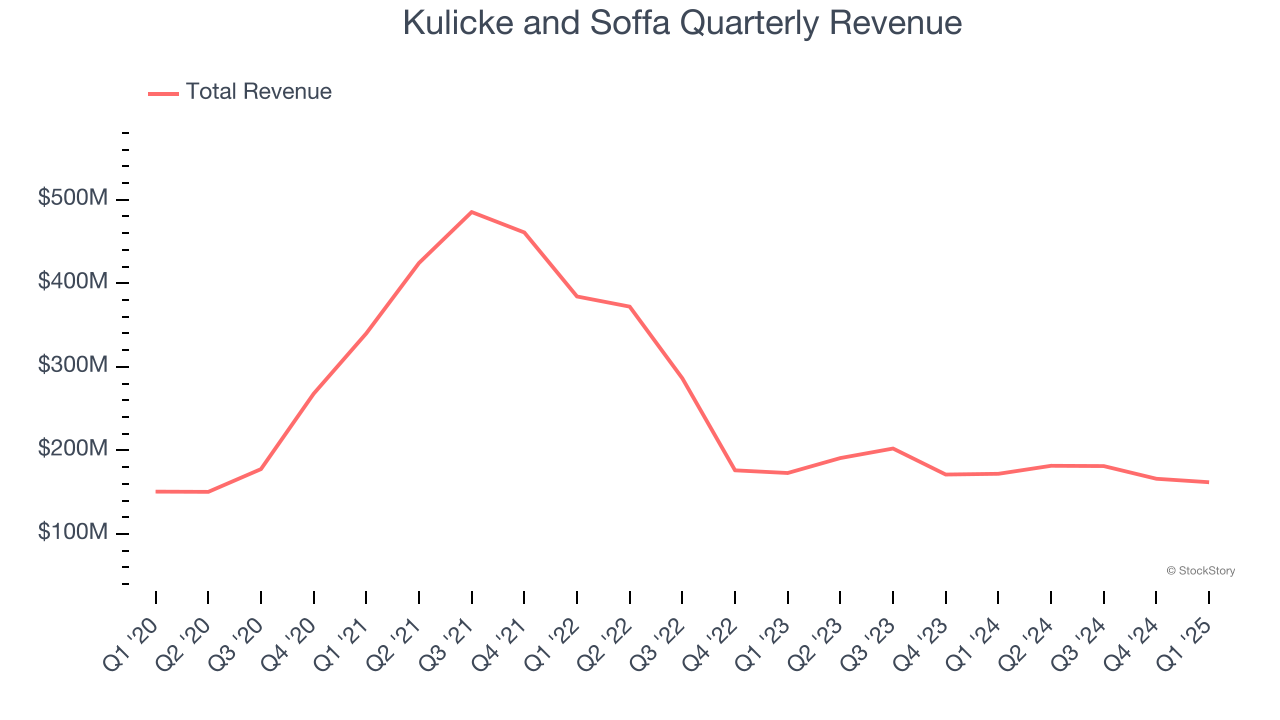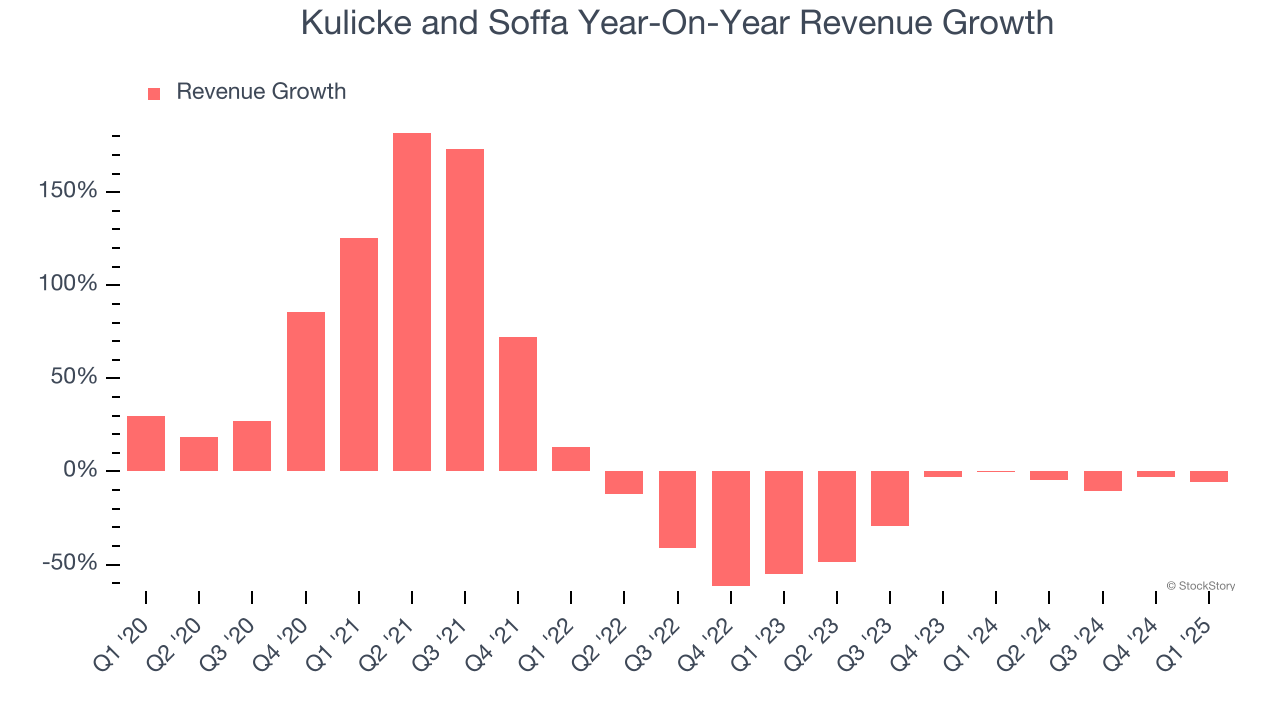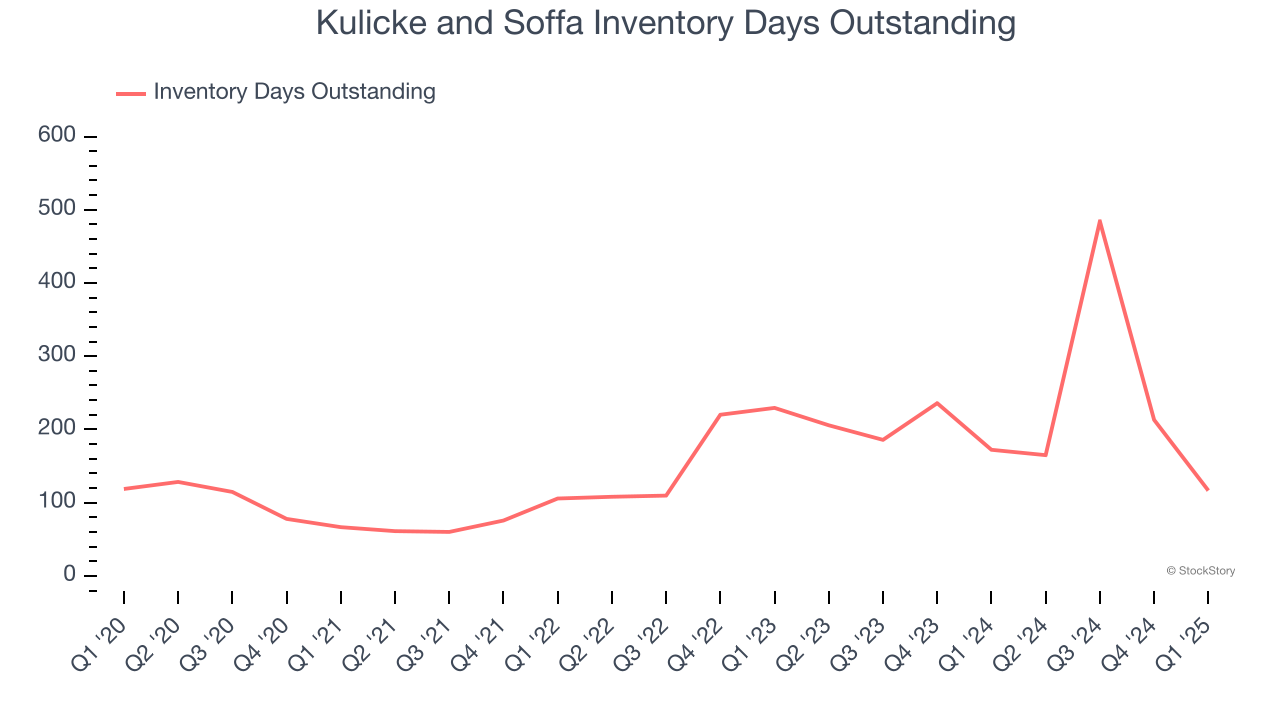
Semiconductor production equipment company Kulicke & Soffa (NASDAQ: KLIC) missed Wall Street’s revenue expectations in Q1 CY2025, with sales falling 5.9% year on year to $162 million. Next quarter’s revenue guidance of $145 million underwhelmed, coming in 23.2% below analysts’ estimates. Its non-GAAP loss of $0.52 per share was significantly below analysts’ consensus estimates.
Is now the time to buy Kulicke and Soffa? Find out by accessing our full research report, it’s free.
Kulicke and Soffa (KLIC) Q1 CY2025 Highlights:
- Revenue: $162 million vs analyst estimates of $165.1 million (5.9% year-on-year decline, 1.9% miss)
- Adjusted EPS: -$0.52 vs analyst estimates of $0.19 (significant miss)
- Revenue Guidance for Q2 CY2025 is $145 million at the midpoint, below analyst estimates of $188.8 million
- Adjusted EPS guidance for Q2 CY2025 is $0.05 at the midpoint, below analyst estimates of $0.35
- Operating Margin: -52.3%, up from -61.1% in the same quarter last year
- Free Cash Flow was $77.98 million, up from -$26.72 million in the same quarter last year
- Inventory Days Outstanding: 116, down from 213 in the previous quarter
- Market Capitalization: $1.75 billion
Fusen Chen, Kulicke & Soffa's President and Chief Executive Officer, stated, "We recently experienced more cautious order activity unique to certain Southeast Asia markets. Despite this near-term regional dynamic, we continue to support our global customer base, see positive core-market utilization data and remain well prepared to accelerate growth through Vertical Wire, Power-Semiconductor, Advanced Dispense and Thermo-Compression technology transitions."
Company Overview
Headquartered in Singapore, Kulicke & Soffa (NASDAQ: KLIC) is a provider of production equipment and tools used to assemble semiconductor devices
Sales Growth
A company’s long-term sales performance is one signal of its overall quality. Any business can put up a good quarter or two, but many enduring ones grow for years. Unfortunately, Kulicke and Soffa’s 4.2% annualized revenue growth over the last five years was sluggish. This fell short of our benchmark for the semiconductor sector and is a tough starting point for our analysis. Semiconductors are a cyclical industry, and long-term investors should be prepared for periods of high growth followed by periods of revenue contractions.

Long-term growth is the most important, but short-term results matter for semiconductors because the rapid pace of technological innovation (Moore's Law) could make yesterday's hit product obsolete today. Kulicke and Soffa’s performance shows it grew in the past but relinquished its gains over the last two years, as its revenue fell by 17.2% annually. 
This quarter, Kulicke and Soffa missed Wall Street’s estimates and reported a rather uninspiring 5.9% year-on-year revenue decline, generating $162 million of revenue. Adding to the miss, the drop in sales could mean that the current downcycle is deepening. Company management is currently guiding for a 20.2% year-on-year decline in sales next quarter.
Looking further ahead, sell-side analysts expect revenue to grow 17.6% over the next 12 months, an improvement versus the last two years. This projection is noteworthy and implies its newer products and services will fuel better top-line performance.
Unless you’ve been living under a rock, it should be obvious by now that generative AI is going to have a huge impact on how large corporations do business. While Nvidia and AMD are trading close to all-time highs, we prefer a lesser-known (but still profitable) stock benefiting from the rise of AI. Click here to access our free report one of our favorites growth stories.
Product Demand & Outstanding Inventory
Days Inventory Outstanding (DIO) is an important metric for chipmakers, as it reflects a business’ capital intensity and the cyclical nature of semiconductor supply and demand. In a tight supply environment, inventories tend to be stable, allowing chipmakers to exert pricing power. Steadily increasing DIO can be a warning sign that demand is weak, and if inventories continue to rise, the company may have to downsize production.
This quarter, Kulicke and Soffa’s DIO came in at 116, which is 40 days below its five-year average. At the moment, these numbers show no indication of an excessive inventory buildup.

Key Takeaways from Kulicke and Soffa’s Q1 Results
We were impressed by Kulicke and Soffa’s strong improvement in inventory levels. On the other hand, its revenue guidance for next quarter missed significantly and its revenue fell short of Wall Street’s estimates. Overall, this quarter could have been better. The stock traded down 5.8% to $29.90 immediately after reporting.
Kulicke and Soffa’s latest earnings report disappointed. One quarter doesn’t define a company’s quality, so let’s explore whether the stock is a buy at the current price. What happened in the latest quarter matters, but not as much as longer-term business quality and valuation, when deciding whether to invest in this stock. We cover that in our actionable full research report which you can read here, it’s free.






